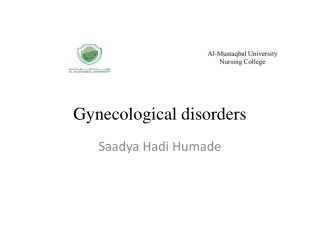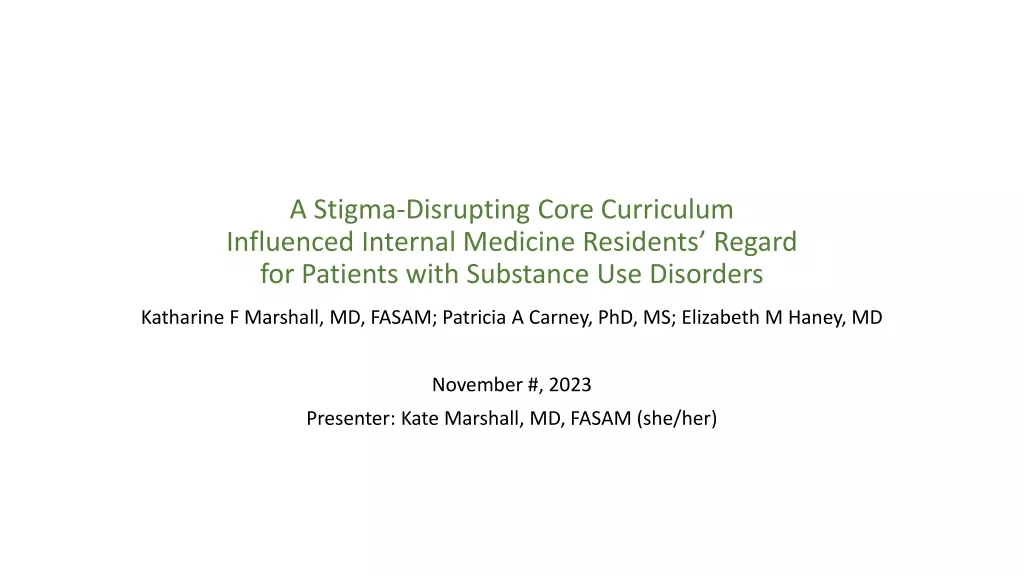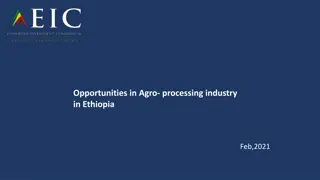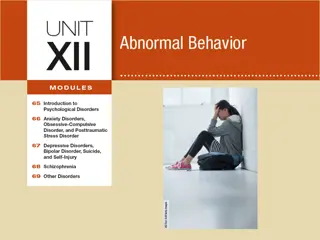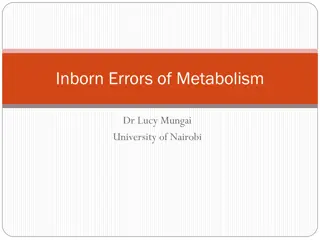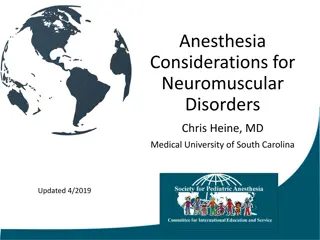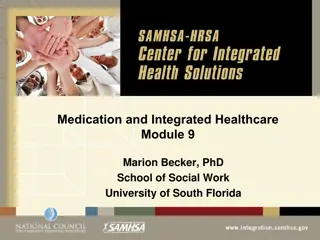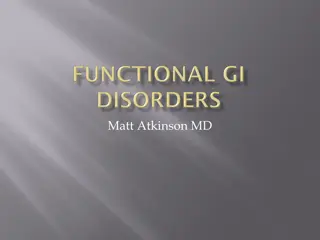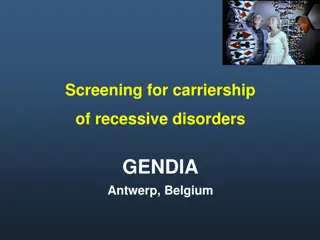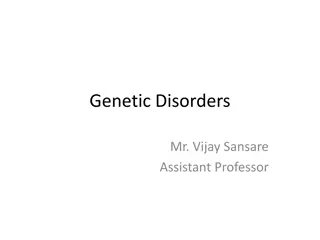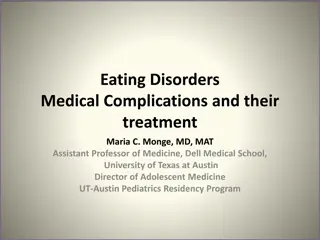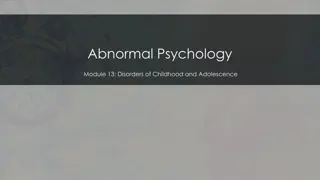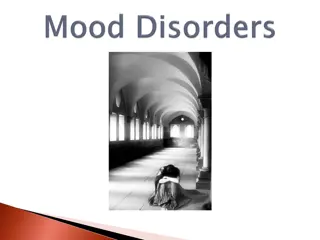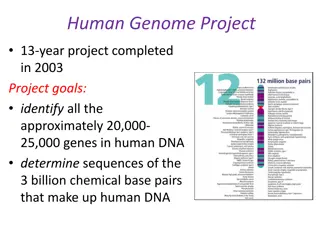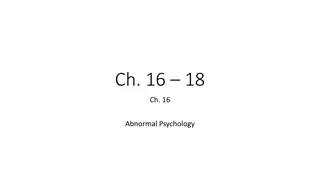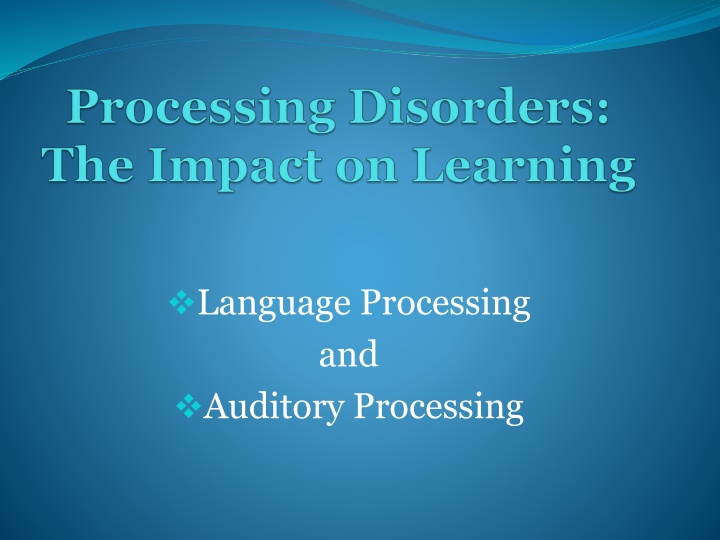
Auditory and Language Processing Disorders
Learn about auditory processing disorders and language processing disorders, their characteristics, assessment methods, and prerequisites for evaluation. Discover how processing deficits can impact academic performance and daily communication.
Download Presentation

Please find below an Image/Link to download the presentation.
The content on the website is provided AS IS for your information and personal use only. It may not be sold, licensed, or shared on other websites without obtaining consent from the author. If you encounter any issues during the download, it is possible that the publisher has removed the file from their server.
You are allowed to download the files provided on this website for personal or commercial use, subject to the condition that they are used lawfully. All files are the property of their respective owners.
The content on the website is provided AS IS for your information and personal use only. It may not be sold, licensed, or shared on other websites without obtaining consent from the author.
E N D
Presentation Transcript
Language Processing and Auditory Processing
What is processing? The ability to interpret or attach meaning to auditorily received information, to then formulate an expressive response. People with processing disorders have normal intelligence and normal hearing acuity. Processing deficits can be subtle, but eventually result in academic problems.
Auditory Processing Disorder Characteristics Normal hearing Difficulty following oral directions. Short auditory attention span Poor short-term and long-term memory Gives impression of not listening even though looking at the speaker; daydreams Difficulty listening in presence of background noise Academic deficits (phonics, reading, spelling) & mild speech- language impairments Disruptive behaviors distracted, impulsive, frustrated. Frequent requests for verbal repetition or often saying huh? History of ear infections.
Language Processing Disorder Characteristics Problems retrieving common words Use of generic, less-specific labels (stuff/things) Misuse of words with similar phonetic structure Delayed response time Frequent I don t know or I forgot responses Inconsistency in learning: requires extensive review of previously learned material Recognizes language errors but can t fix them Incomplete sentences or thoughts. Pragmatic problems; disruptive behavior Age commensurate IQ with academic difficulties
Processing Assessment Auditory Processing Language Processing Speech-Language Pathologists (SLPs) assess language processing Audiologists conduct central auditory processing (CAP) assessment
Prerequisites for Assessment Auditory Processing Language Processing To appropriately evaluate CAPD, three requirements must be met: To appropriately evaluate LPD, three requirements must be met: Normal/near normal hearing Normal/near normal hearing Normal/near normal intellectual functioning Normal/near normal intellectual functioning Acoustic signal/auditory information is received accurately Adequate receptive/expressive language acquisition
Teacher Modification Strategies for CAPD Amplify the auditory signal. (FM systems improve the signal to noise ratio) Reduce the amount of background noise. Preferential seating (maximize auditory and visual signals) Clear/concise directions. (include only pertinent instruction) Gain attention prior to giving instruction. Restate, paraphrase, & emphasize important information. Monitor YOUR use of rate, inflection, gestures, etc. Use visual supports and demonstrate to supplement instruction. (supplement verbal material with written when possible) Check for comprehension Use peer pairing/buddy system to check notes, assignments, etc.
How can students with CAPD assume responsibility?
Compensatory Strategies: Students being their own advocate. Pay attention to the speaker. (watching facial expressions/body language) Listen for meaning/key words (note taking strategies: write down meaningful words) Repeat information (rehearse information until you attach meaning to it) Learn to CONCENTRATE on the speaker. (focus is critical to learning) Paraphrase & check for comprehension (take notes, ask peers if they understood the same information/content) Ask clarification questions (state what you DO KNOW and then seek on what you are unsure of ) Peer/buddy check: (Again use a peer to check your information/compare notes) Be proactive! Be your own ADVOCATE! (review content prior to lecture, actively participate, seek clarification, take responsibility of learning)
Teacher Modification Strategies for LPD Multimodality approach: present information using visual, tactile, motor, auditory, etc. Supplement auditory/verbal information with visuals (write key words, assignments, notes, etc. to support instruction) Provide cues. Prompts, etc. ( phonemic cues - i.e. it starts with a s , choice prompts - i.e. is it a verb or adjective) Give examples to help make connections between the content and real life experiences (Teachers who share stories will help the student to connect a memory to information present & aid in retrieval) Allow for thinking time (it can be helpful to present a question and allow the entire class time to think before responding)
Teacher Modification Strategies for LPD (continued) Shorten length of assignments to focus on accuracy Vary the type of questions/responses on class discussions/exams (i.e. teachers use multiple choice verses open ended questions) Paraphrasing, repeating, clarifying information
How can students with LPD assume responsibility?
LPD Compensatory Strategies: Students being their own advocate If you need extra time to do work, ask for more time. Use retrieval strategies that you have learned. Ask for cues (when you struggles to retrieve info., asking a teacher for help shows you are interested and trying to learn) Paraphrase & check for comprehension (repeat information back to the teacher, take notes, ask peers if they understood the same information/content) Ask clarification questions (state what you DO KNOW and then seek on what you are unsure of ) Peer/buddy check: (Again use a peer to check your information/compare notes) Be proactive! Be your own ADVOCATE! (review content prior to lecture, actively participate, seek clarification, take responsibility of learning)
Student Compensatory Strategies CAPD LPD Pay attention to the speaker. (watching facial expressions/body language) Listen for meaning/key words (note taking strategies: write down meaningful words) Repeat information (rehearse information until you attach meaning to it) Learn to CONCENTRATE on the speaker. (focus is critical to learning) Paraphrase & check for comprehension (take notes, ask peers if they understood the same information/content) Ask clarification questions (state what you DO KNOW and then seek on what you are unsure of ) Peer/buddy check: (Again use a peer to check your information/compare notes) Be proactive! Be your own ADVOCATE! (review content prior to lecture, actively participate, seek clarification, take responsibility of learning) If you need extra time to do work, ask for more time. Use retrieval strategies that you have learned. Ask for cues (when you struggles to retrieve info., asking a teacher for help shows you are interested and trying to learn) Paraphrase & check for comprehension (repeat information back to the teacher, take notes, ask peers if they understood the same information/content) Ask clarification questions (state what you DO KNOW and then seek on what you are unsure of ) Peer/buddy check: (Again use a peer to check your information/compare notes) Be proactive! Be your own ADVOCATE! (review content prior to lecture, actively participate, seek clarification, take responsibility of learning)
Build a strong foundation Students with LPD require support to build a strong language foundation in order to achieve academic success. Multiple Meanings Differences Similarities Categorization Associations Functions Once a student masters one level, that will be the foundation/building block to scaffold to the next level. Labeling
Moving from concrete to abstract language skills Language skills scaffold into higher-level, more complex demands as students progress academically. Figurative language, humor, inferences Multiple Meanings Language processing continues throughout life! Differences Similarities Concepts Antonyms Categorization Synonyms Associations Functions Labeling
Coming together is a beginning. Keeping together is progress. Working together is success. ~Henry Ford Richard, Gail. J. (2001). The Source for Processing Disorders. LinguiSystems. Presented by: Jodi Hammond, M.S. CCC-SLP

